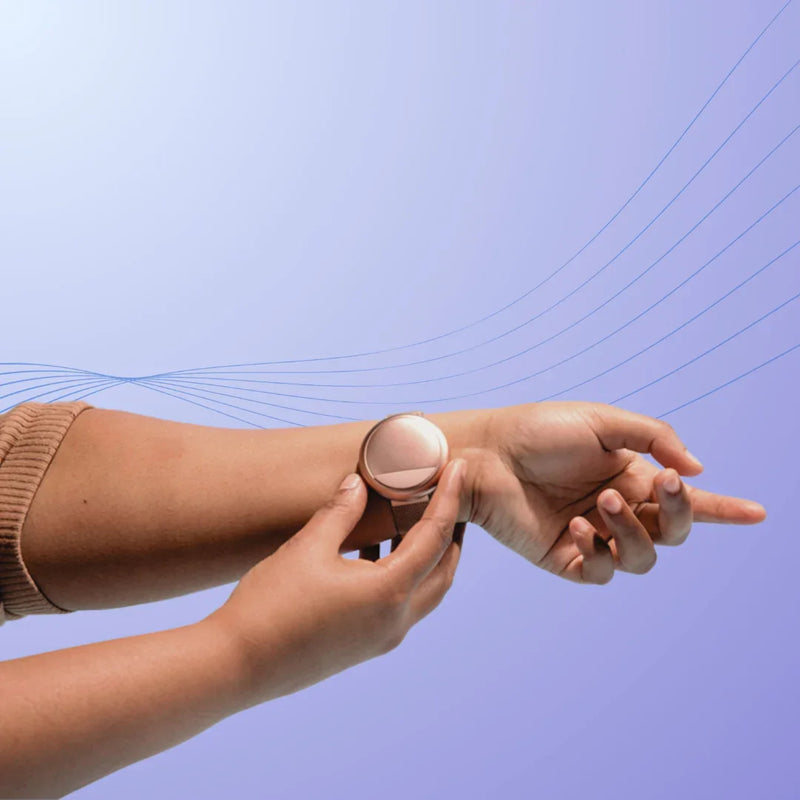In what ways does temperature affect my daily life?
In case you haven’t seen the article, recently the New York Times published a piece on the impact of heat on mood and cognitive performance, sharing that rising temperatures can cause us to be impulsive and even angry. Which makes complete sense. Who isn’t cranky when they’re sticky and overheating?
But temperature in general has a much wider impact on our brains and bodies.
The Impact of Temperature on Mood and State of Mind
Temperature isn't just a number—it's a silent influencer of our daily lives, subtly shaping how we feel and think. This blog delves into the fascinating connection between temperature and human psychology, backed by the research and studies that highlight its profound effects.
1. Warmth and Happiness: The Sunshine Effect
Ever noticed how a sunny day seems to lift everyone's spirits? There's science behind that. Research from Harvard University suggests that warmer weather correlates with increased levels of happiness and social interaction (Anderson et al., 2012). The sun's warmth stimulates the production of serotonin, a neurotransmitter known for its mood-boosting properties.
2. Cooler Temperatures: Alert and Focused
Cooler environments have their own benefits. Studies published in Temperature indicate that moderate cold can enhance alertness and cognitive performance (Schneider et al., 2017). Cold temperatures may trigger the release of norepinephrine, helping us stay sharp.
3. Navigating Seasonal Changes: The Winter Blues
As seasons shift, so can our mood. Seasonal Affective Disorder (SAD) affects many during winter months, characterized by feelings of fatigue and low mood due to reduced sunlight exposure (Rosenthal et al., 1984). Understanding these seasonal fluctuations can help us better manage our mental health year-round.
4. Optimizing Sleep: The Temperature Sweet Spot
Temperature isn't just about waking hours—it affects our sleep too. The National Sleep Foundation recommends a slightly cooler room for optimal sleep quality (National Sleep Foundation, n.d.). Finding that perfect temperature balance can help us achieve restorative sleep and wake up refreshed.
Conclusion
Temperature isn't just a physical sensation; it's a powerful force that shapes our emotional and mental states every day. By recognizing and harnessing its effects, we can create environments that support happiness, productivity, and well-being. Whether it's embracing the warmth of a sunny day or finding comfort in a cozy night, temperature plays a crucial role in how we experience and navigate the world.
Understanding these dynamics empowers us to optimize our surroundings, enhancing our overall quality of life through all seasons.
References:
- Anderson, C. A., & DeNeve, K. M. (2012). Hot temperatures, hostile affect, hostile cognition, and arousal: Tests of a general model of affective aggression. Personality and Social Psychology Bulletin, 38(8), 1018-1030.
- Schneider, S., Stone, A. A., & Harter, J. K. (2017). Cognitive, affective, and arousal mechanisms underlying the temperature-aggression relationship. Temperature, 4(1), 11-20.
- Rosenthal, N. E., et al. (1984). Seasonal affective disorder: A description of the syndrome and preliminary findings with light therapy. Archives of General Psychiatry, 41(1), 72-80.
- National Sleep Foundation. (n.d.). How temperature affects sleep. Retrieved from https://www.sleepfoundation.org/bedroom-environment/touch/how-temperature-affects-sleep

